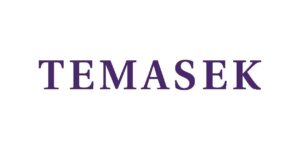AI is not just a future concept; it’s a powerful tool for today, said Rajat Pandit, Head of Customer Engineering for Digital Natives at Google Cloud, at TechSparks 2024 while addressing the critical role of artificial intelligence (AI) in propelling startups towards growth and efficiency.
Pandit illustrated the transformative capabilities of AI, highlighting how AI can empower emerging companies to gain a competitive edge and drive significant business outcomes.
“At Google, we believe that AI can solve complex problems and improve lives in real-time,” he stated, showcasing the breadth of AI’s applications, from enhancing supply chain efficiency to leveraging satellite technology to combat methane emissions.
Pandit further noted, “Our technical resources can help you unblock roadblocks,” highlighting the assistance Google provides to startups. He added, “Access to our wider ecosystem, including Google Workspace and Maps, is crucial for building something meaningful.”
He explained that Google’s ecosystem includes many tools and resources beyond just one large language model, enabling startups to innovate and leverage AI capabilities without building everything from scratch.
Flexibility and functionality
Transitioning into the technical aspects, Pandit emphasised the importance of flexibility in model selection. “Choosing the right model for the right job at the right price is essential,” he noted. With Google’s Model Garden, startups have access to first-party and open-source models, allowing them to tailor solutions to their specific needs.
“Once you understand the landscape, tuning and expanding capabilities becomes seamless,” he added, underscoring the importance of machine learning operations (MLOps).
Talking about an “agent builder” that integrates various AI capabilities, Pandit said, “AI is more than just models; it’s about building workflows that differentiate your product in the market.” By emphasising a standardised platform, Pandit conveyed that real innovation comes from how startups apply these technologies to solve real-world problems.
One of the features Pandit discussed was the multi-modal capabilities of AI, particularly in the newly released Gemini model. “This model can understand text, video, audio, and code—all in the same context. Imagine sending a large video and asking it to analyse individual frames—that’s the power of our latest technology,” he said.
New horizons: video and audio generation
He also highlighted Google’s advances in video and audio generation tools. “With our text-to-video capabilities, you can create dynamic content effortlessly,” he shared, showcasing examples where simple prompts could generate complex videos.
He also detailed audio generation features, stating, “We can create custom voices and even dub existing videos in multiple languages with lip-syncing.” This level of innovation opens up new avenues for content creation across various industries, he added.
Pandit shared the grounding for the search feature, allowing AI models to respond based on up-to-date, authoritative sources. “This ensures that your responses are not just accurate but also relevant. Now you can plug your data sources directly into our models, creating a structured and validated output,” he added.
Underscoring the trust that startups place in Google Cloud for their infrastructure needs, he said, “Many emerging companies are building their stacks on Google Cloud because we provide the necessary building blocks for innovation.”










